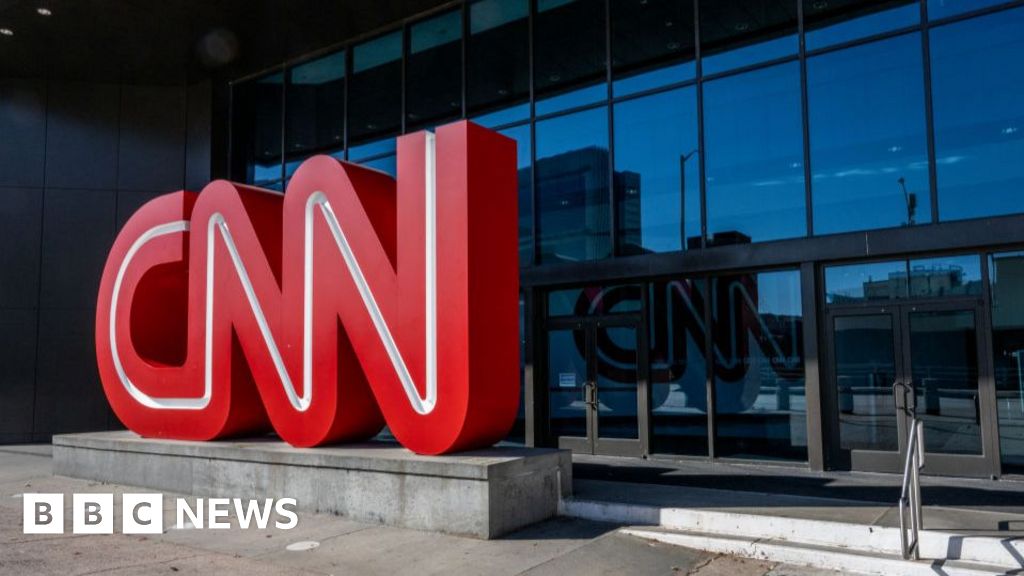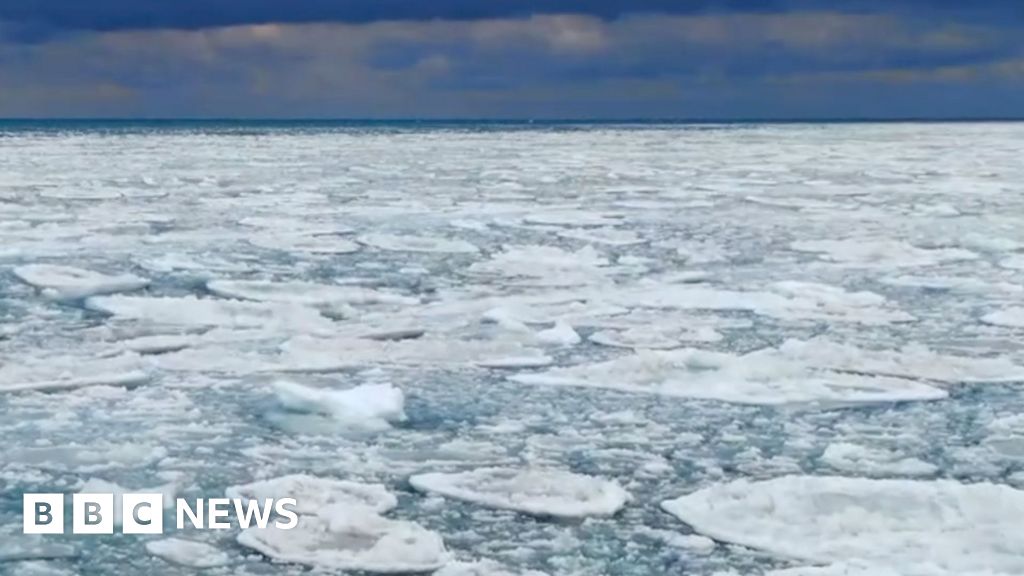ARTICLE AD BOX
Watch: Trump calls Supreme Court ruling a 'unifying factor’
By Bernd Debusmann Jr
BBC News, Washington
The US Supreme Court has struck down efforts by individual states to disqualify Donald Trump from running for president using an anti-insurrection constitutional clause.
The unanimous ruling is specific to Colorado, but it also overrides challenges brought in other states.
Colorado had barred Mr Trump from its Republican primary, arguing he incited the 2021 Capitol riot.
The court ruled that only Congress, rather than the states, had that power.
The top court's decision clears the way for Mr Trump to compete in the Colorado primary scheduled for Tuesday.
The ex-president immediately claimed victory, taking to his Truth Social media platform to claim a "big win for America". The message was quickly followed by a fundraising email sent to supporters of his campaign.
Speaking from his estate in Mar-a-Lago, Florida hours after the ruling, Mr Trump said that the decision was "very well crafted" and will "go a long way towards bringing our country together, which it needs".
"You can't take someone out of a race because an opponent would like it that way," Mr Trump added.
Colorado's Secretary of State, Jena Griswold, said that she was disappointed by the ruling and that "Colorado should be able to bar oath-breaking insurrections from our ballot".
Additionally, the watchdog group that brought the case in Colorado, Citizens for Responsibility and Ethics in Washington (Crew), said in a statement that while the court "failed to meet the moment", it is "still a win for democracy: Trump will go down in history as an insurrectionist".
Two other states, Maine and Illinois , had followed Colorado in kicking Mr Trump off the ballot on similar grounds.
The efforts in both states were put on hold while his challenge to the Colorado ruling was escalated to the Supreme Court.
"We conclude that states may disqualify persons holding or attempting to hold state office," the court's opinion says. "But states have no power under the Constitution to enforce Sections 3 with respect to federal offices, especially the presidency."
The nine justices ruled that only Congress can enforce the 14th Amendment's provisions against federal officials and candidates.
Part of the Civil War-era amendment - section 3 - bars federal, state and military officials who have "engaged in insurrection or rebellion" against the US from holding office again.
Groups including Free Speech For People had argued that the attempt to delay the peaceful transfer of power on 6 January 2021 matched the definition of insurrection outlined in the amendment.
One of the court's justices, Amy Coney Barrett, wrote separately that the fact that all nine justices agreed on the outcome of the case is "the message that Americans should take home".
Image source, Getty Images
Image caption,The case argued that President Trump had incited the crowd that stormed the US Capitol on 6 January 2021
"The court has settled a politically charged issue in the volatile season of a presidential election," Ms Barrett wrote. "Particularly in this circumstance, writings on the court should turn the national temperature down, not up."
But the court's three liberal justices argued that the ruling seeks to "decide novel constitutional questions to insulate this Court and [Trump] from future controversy" by announcing "that a disqualification for insurrection can occur only when Congress enacts a particular kind of legislation".
"In doing so, the majority shuts the door on other potential means of enforcement," they added.
Atiba Ellis, a law professor at Case Western Reserve University in Ohio, told the BBC that while the court's concerns about Mr Trump's exclusion from the ballot are "fair", the ruling "may have far-reaching consequences".
"It opens the door to constitutional interpretation matters that weren't at issue in the case. The decision throws the problem to Congress at a time when partisan deadlock will guarantee inaction on this matter," Mr Ellis added. "The decision effectively ensures that the question of the former president's constitutional eligibility under Section 3 will not be resolved prior to the 2024 election."
Another legal scholar, Albany Law School's Ray Brescia, said the court's decision prevents a situation in which there is a "patchwork of states with different processes".
"If the court was to allow Colorado to proceed in this way, what's to stop some rogue prosecutor in another state from saying that a candidate from a different party is not a viable candidate because they engaged in insurrection?," he said.
Mr Trump is the front-runner for the Republican nomination and looks likely to face a rematch with Democratic President Joe Biden in November's general election.
Republican voters in Colorado and 14 other states will vote on Tuesday in a marathon contest dubbed Super Tuesday.
The former president is widely expected to sweep the board and defeat his sole remaining opponent, former UN Ambassador Nikki Haley, in every battleground.

 10 months ago
78
10 months ago
78








 English (US) ·
English (US) ·